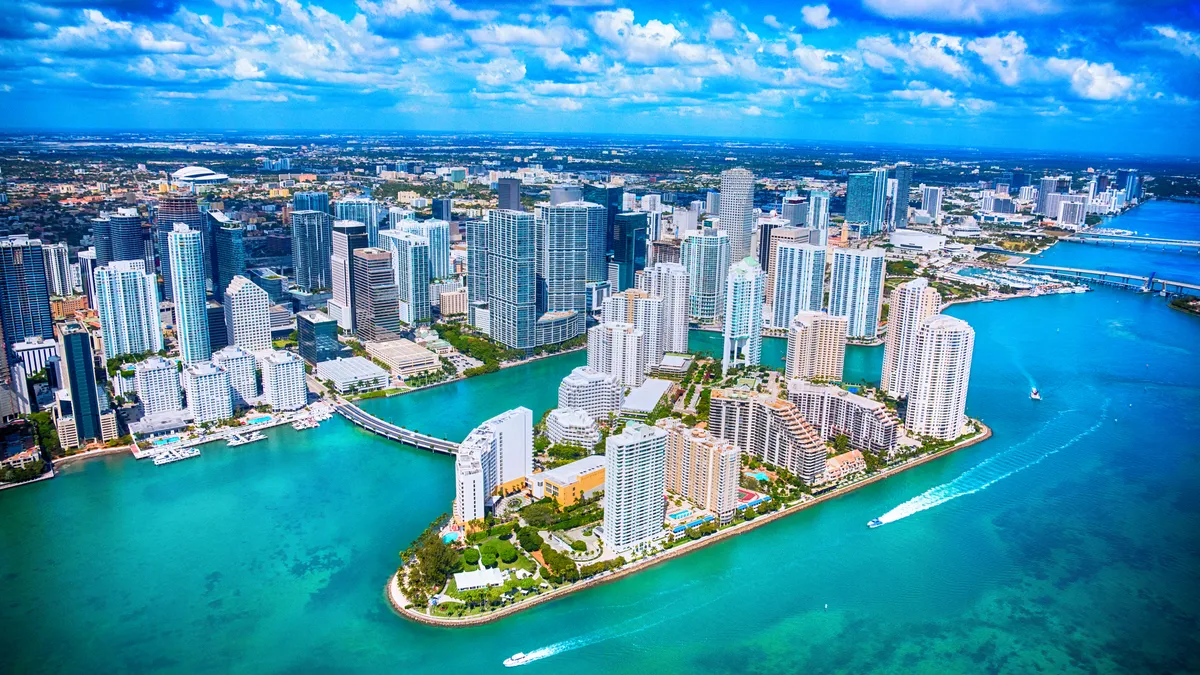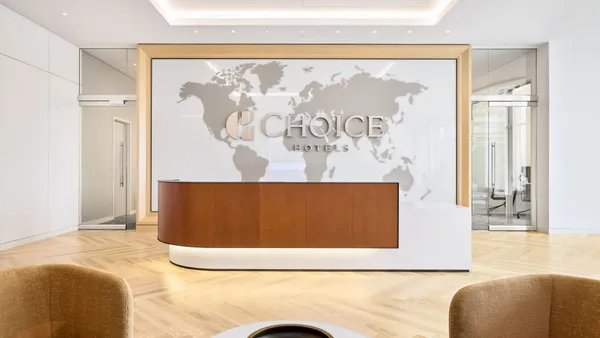Dive Brief:
- CBRE expects U.S. hotel RevPAR to grow 2% in 2025 as a result of slight increases in inbound international visits, group demand and business travel, while margins and profits are expected to decline as expenses outpace total revenue growth, according to its 2025 Global Hotel Outlook.
- Competition from alternative lodging sources continues to be a concern, as short-term rental demand share reached 13.5% in January compared with 11.3% at the beginning of 2020. Short-term rentals experienced strong rate growth and occupancy expansion in January with RevPAR increasing 8.1%, per CBRE.
- Political and economic uncertainty, including potential additional tariffs, stricter immigration enforcement and higher insurance costs, could affect future U.S. hotel industry forecasts, according to the outlook.
Dive Insight:
Fueled by room rate gains, RevPAR this year is expected to grow 2%, according to CBRE’s outlook. Other contributing factors like inbound international travel, airline passenger throughput, real GDP growth and growth in discretionary income are slowing, according to CBRE.
Urban locations are projected to experience the strongest growth at 2.8% year on year, while the softest will be in suburban and small-town locations at 1.3% and 1.8% year on year, respectively.
In February, the American Hotel & Lodging Association projected U.S. RevPAR would rise 2.58% in the year, per the association’s 2025 State of the Industry Report.
Back in January, CoStar and Tourism Economics also projected similar results, with U.S. RevPAR expected to grow 1.8% in 2025.
CBRE’s outlook states that higher-priced hotels will once again outperform due to mid-single-digit percentage increases in inbound international travel, modest increases in group demand and a “slight improvement” in business travel.
A third consecutive year of margin and profit declines is expected due to higher insurance costs, which rose because of the many natural disasters that occurred across the country. And wage and food inflation could be exacerbated by stricter immigration enforcement and potential tariffs on agricultural products from Canada and Mexico, leading to further declines, CBRE noted.
Despite the political and economic uncertainty, CBRE forecasts that U.S. markets with strong business and leisure appeal and modest supply growth will outperform the rest of the country. These markets include New York City, where Airbnb restrictions are helping to drive record room rates, and Orlando, where new theme parks and group business are driving strong demand, per CBRE.
Major upcoming events — including the 2026 World Cup, the 2028 Olympics and the country’s 250th anniversary in 2026 — combined with the strong appeal of national parks, global gateway cities and leisure destinations should drive RevPAR growth of between 1.5% and 3.5% over the next several years, according to the report.











